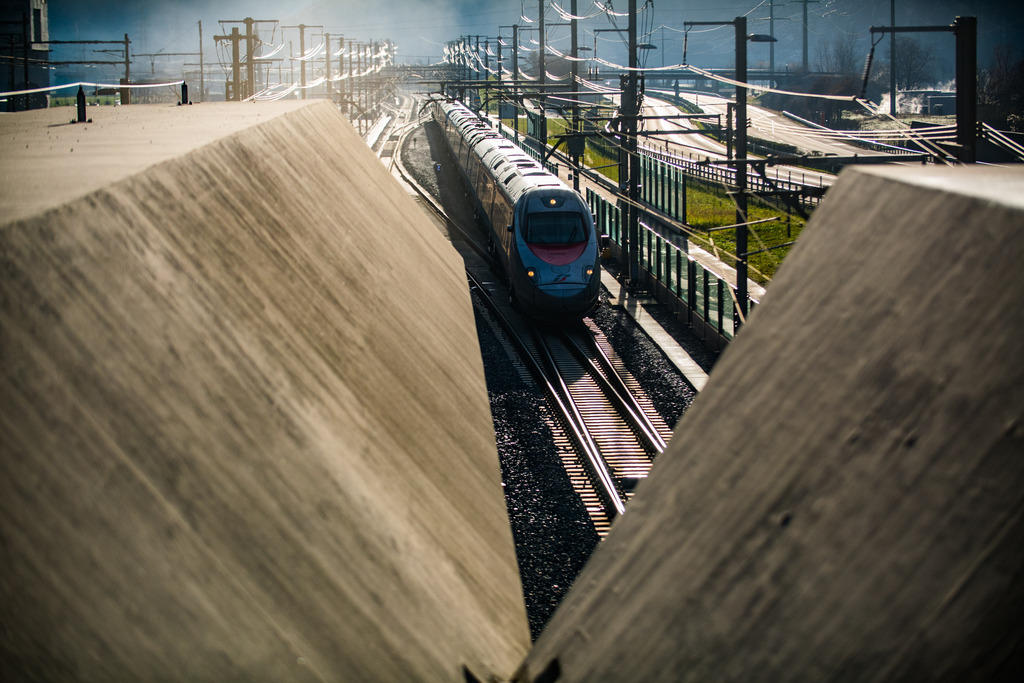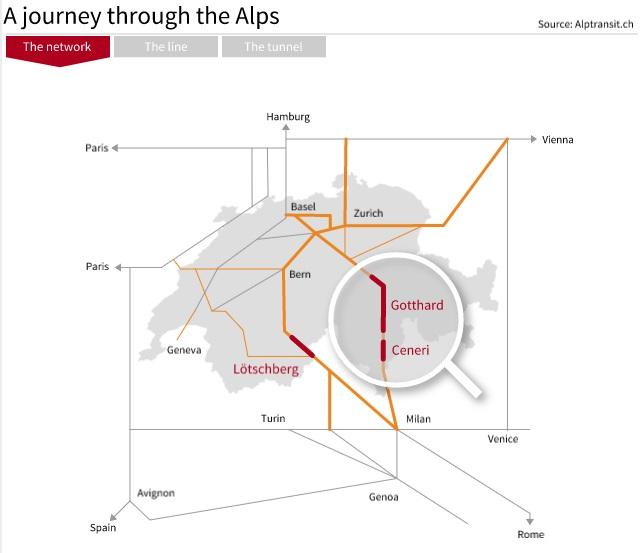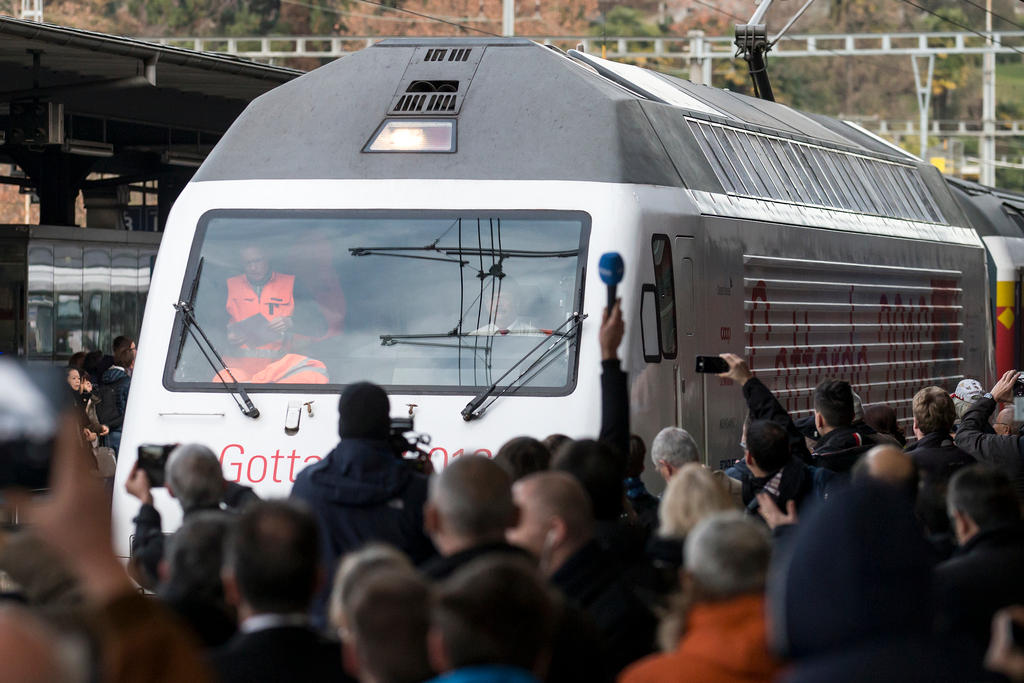Record number of passengers through Gotthard rail tunnel

It has been one year since the first trains started using the Gotthard Base Tunnel – the world’s longest rail tunnel.
The new tunnel opened on December 11, 2016. Since then, passenger and freight train traffic through the Alps has increased significantly. Over the past year, an average of 11,000 train passengers have passed through it every day – accounting for 30% more traffic than on the old Gotthard train line.
Despite this increase in passenger numbers, the punctuality of trains has improved “markedly” according to Swiss Federal Railways.
In all, 18,395 passenger trains and 24,757 freight trains passed through the new tunnel, with up to 165 convoys on peak days.
+ First full day of service for the Gotthard rail tunnel
Tourism has been one of the main sectors to benefit from the increased traffic via the new tunnel. South of the Alps, canton Ticino recorded a 7.7% rise in overnight stays during the first seven months of 2017. This is the best result since 2010.
This success “is not just the result of the Gotthard Base Tunnel, but its opening has played a major role,” says Lorenzo Pianezzi, president of the Ticino Hotel Association.

More
A journey through the Alps
There has also been an impact on the number of visitors travelling northwards to German-speaking regions on the other side of the Alps, which the specialist tourism magazine Hotel Revue refers to as “the tunnel effect to the north”. In central Swiss cantons Lucerne and Uri, the number of Italian tourists has increased significantly.
As part of the revised timetable changes, the Gotthard tunnel is playing an even more important role in international north-south traffic. There are now direct daily connections between Frankfurt and Milan, and Zurich and Venice.
The number of trains passing through the Alps will reach full capacity by the end of 2020, when Ticino opens the other central element of the new Gotthard line – the 15.4-kilometre-long Monte Ceneri Base Tunnel (15.4 km). Within three years, fast trains will reduce the current journey time between Zurich and Milan by 30 minutes to under three hours.
Translated by Simon Bradley

In compliance with the JTI standards
More: SWI swissinfo.ch certified by the Journalism Trust Initiative












You can find an overview of ongoing debates with our journalists here . Please join us!
If you want to start a conversation about a topic raised in this article or want to report factual errors, email us at english@swissinfo.ch.